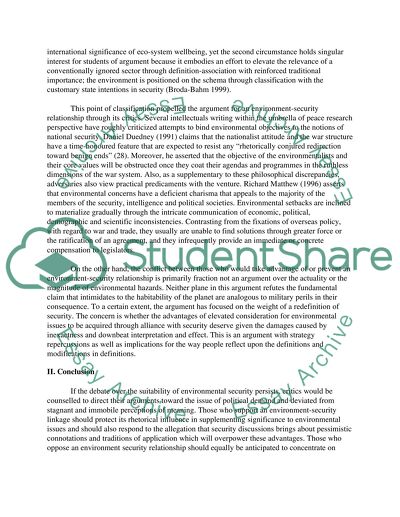Cite this document
(“Overview of the Environmental Security Debate Essay”, n.d.)
Overview of the Environmental Security Debate Essay. Retrieved from https://studentshare.org/environmental-studies/1549126-overview-of-the-environmental-security-debate
Overview of the Environmental Security Debate Essay. Retrieved from https://studentshare.org/environmental-studies/1549126-overview-of-the-environmental-security-debate
(Overview of the Environmental Security Debate Essay)
Overview of the Environmental Security Debate Essay. https://studentshare.org/environmental-studies/1549126-overview-of-the-environmental-security-debate.
Overview of the Environmental Security Debate Essay. https://studentshare.org/environmental-studies/1549126-overview-of-the-environmental-security-debate.
“Overview of the Environmental Security Debate Essay”, n.d. https://studentshare.org/environmental-studies/1549126-overview-of-the-environmental-security-debate.


